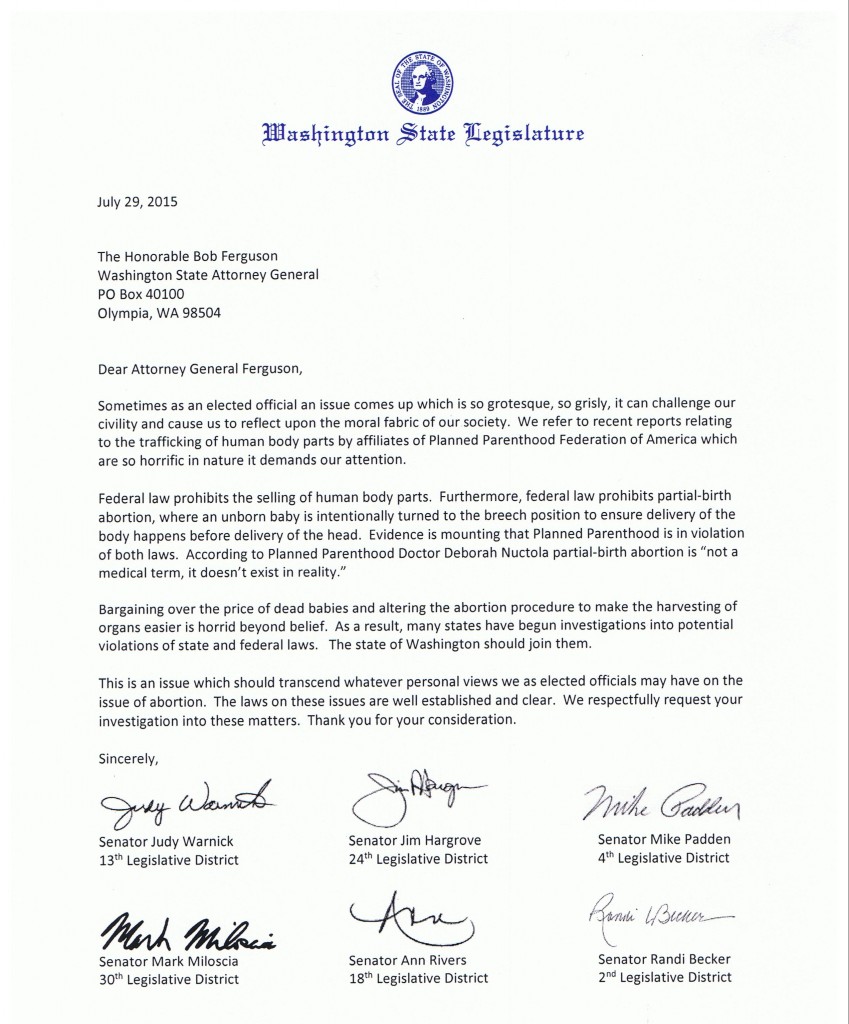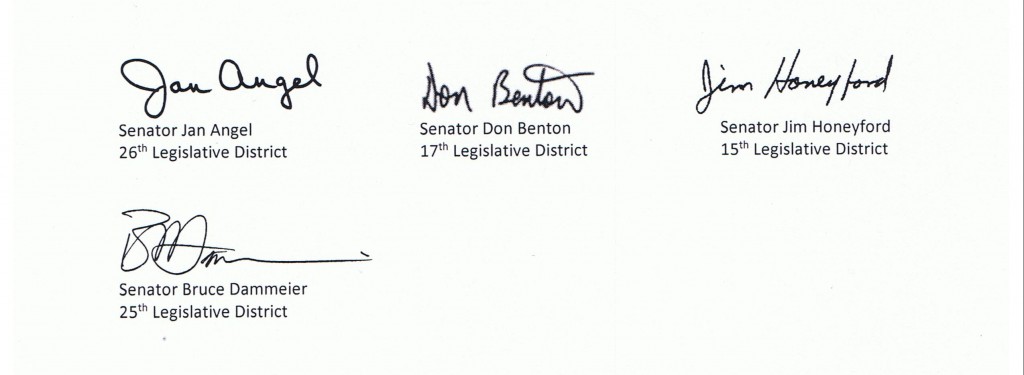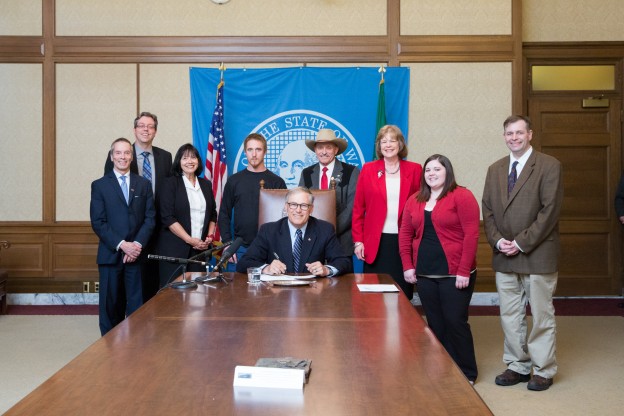Greetings Friends and Neighbors,
The special session is scheduled to conclude on May 28. Budget negotiators have been working to bridge gaps in the respective proposals for the state’s two-year operating budget. The governor released his budget in December which called for increased spending above existing resources by $1.5 billion. Since then, the state’s resource have increased by $1.1 billion. I have been consistent in my belief that we can meet the real priorities of state government, like education, without raising taxes. The recent news that revenues are again up nearly $400 million are further indication that the Legislature can budget within its means.
Session Successes

From Left to Right: Staff from the state Dept. of Agriculture, Jack Fields from the WA Cattlemen’s Assoc., Monty Dent, Gov. Inslee, Dana Dent and Rep. Dent, myself, Hannah Castro, and Kyle Lynch
After months of hard work, some bills that I’ve sponsored have become law.
I sponsored Senate Bill 5603 to meet the increasing popularity and demand for cottage foods such as baked goods, jams and fruit preserves. The new law increases the maximum amount of annual gross sales kitchen-to-consumer entrepreneurs may have, without losing their “cottage” status, from $15,000 now to $25,000 when the law changes in late July.
Currently, cattle sales require onsite inspections for certain circumstances. The new law that recently took effect as a result of my legislation, Senate Bill 5733 would take advantage of cutting-edge technology by implementing an electronic livestock transaction system. The legislation allows for electronic reporting of cattle transactions as an alternative to mandatory cattle inspection requirements currently in place. The new law also requires the state’s Department of Agriculture to provide annual reports to the Legislature on the implementation of the new program.
Independent commission votes to increase legislator pay
Last week the Washington Citizen’s Commission on Salaries for Elected Officials voted to increase all members of the executive, judicial and legislative branches of government pay. In the late 1980s citizens passed a constitutional amendment to remove any appearance of impropriety in legislators setting their own pay. I’m disappointed by this recent decision that was made without any elected officials’ input and is so out of step with what other state employees receive.
The Commission is made up of citizens from around the state. You can click here to see who is currently serving on this body and how they are appointed. Click here to see more information on the pay increases adopted by the Commission. The backgrounds of the members serving on the Commission are diverse including a representative from organized labor groups. The first part of the salary increase will go into effect this year at the beginning of September.
Drought Expands
I serve on the Joint Legislative Committee on Water Supply During Drought. Earlier this year Gov. Inslee proclaimed a drought for the east side of the central Cascade Mountains. Last week the drought has been expanded statewide. With that proclamation the Dept. of Ecology requested emergency funding to deal with the drought. I have been working with stakeholders to make sure resources are available to affected communities. You can click here to read a recent article.

Judy Warnick,
13th District Senator
Contact Me
Olympia Office:
103 Irv Newhouse Bldg.
P.O. Box 40410
Olympia, WA 98504
Olympia Phone:
360.786.7624
District Phone:
509.766.6505
E-mail:
Judith.Warnick@leg.wa.gov
Website:
Click here to visit my website.
|



















